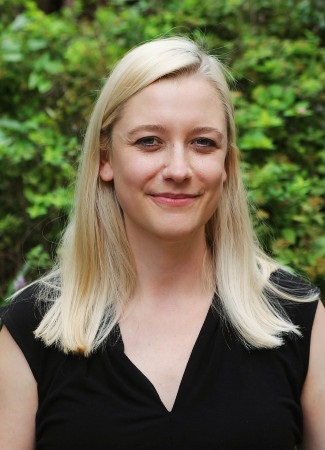Vanderbilt scientists Katherine Aboud, PhD'19, Breann Brown and Will Wan, PhD'14, have received 2021 National Institutes of Health Director's Awards for their unconventional, bold approaches to research that advances knowledge and enhances health.
These grants are awarded from the NIH Common Fund's High-Risk, High-Reward Research Program, which supports "highly innovative and unusually impactful biomedical or behavioral research proposed by extraordinarily creative scientists."
"It is a tremendous honor for Vanderbilt scholars to receive this grant. I am deeply inspired by the intellectual courage and fortitude demonstrated by my colleagues Katherine, Breann and Will-they demonstrate the centrality of taking calculated risks to explore some of science's boldest hypotheses," said Vanderbilt University Provost and Vice Chancellor for Academic Affairs C. Cybele Raver. "I am grateful to the NIH for presenting Katherine, Breann and Will with this well-deserved recognition."

Aboud, a postdoctoral scholar at Peabody College of education and human development, has received an NIH Director's Early Independence Award, designed "for exceptional junior scientists who have recently received their doctoral degree or completed their medical residency to skip traditional postdoctoral training and move immediately into independent research positions." Aboud earned her doctorate in neuroscience from Vanderbilt in 2019 after receiving a bachelor of science in English and mathematics from Virginia Tech and an M.F.A. from George Mason University.
Aboud has been awarded the Early Independence Award to develop a noninvasive brain stimulation protocol to treat low reading comprehension in adults. She is a researcher in the Education and Brain Sciences Research Lab, which, under the direction of Professor Laurie Cutting, uses neuroscientific approaches to address reading disabilities in children. The NIH Director's grant will enable her to expand her focus to adults with poor literacy.
"Literacy in the United States is a major public health crisis; one in five adults cannot adequately comprehend a written passage. Poor literacy is related to everything from one's mental and physical health to education and career outcomes," Aboud said. "This grant provides support for an exciting interdisciplinary field that fuses brain imaging and noninvasive brain stimulation to respond to a complex societal problem. I am grateful to the unique resources of the Vanderbilt Kennedy Center, Vanderbilt Brain Institute and Vanderbilt University Institute of Imaging Science that will make the research possible."
Her research specifically involves using MRI and EEG to gain a high-resolution understanding of what reading comprehension and learning looks like in adult brains. Aboud and her team will work to identify interventions for adults with poor reading comprehension using safe, low-intensity brain stimulation that is noninvasive. The grant (# DP5 OD031843) will provide $250,000 annually over a period of five years for direct research costs.
Brown and Wan, who are both assistant professors of biochemistry in the School of Medicine Basic Sciences, have received New Innovator Awards. These grants support "unusually innovative research from early career investigators who are within 10 years of their final degree or clinical residency and have not yet received a research project grant or equivalent NIH grant."

Brown earned her bachelor of science from Duke University and her doctorate in molecular pharmacology and physiology from Brown University. She then completed her postdoctoral training at the MIT Department of Biology, where she used X-ray crystallography and biochemical techniques to study mechanisms of protein assembly in bacteria and human metabolic systems.
Brown joined the Vanderbilt faculty in 2019. Her lab uses structural biology and enzymology to understand how mitochondrial proteins assemble in cells to produce energy and maintain human health. "We know that mitochondria, the powerhouse of the human cell, are vital to our survival, and any mutations in their processes can signify various diseases. This grant (# 1DP2GM146255-01) will help transform our understanding of the cell's metabolism from a step-to-step process to one that breaks down all of the different components and processes coming in at each of those steps." She noted that her research is well suited for a high-risk, high-rewards program as opposed to a more traditional one with extensive preliminary data.

Wan, who joined the Vanderbilt faculty in 2020, is a member of the Center for Structural Biology. He earned a bachelor of science in biochemistry from Binghamton University and a doctorate in chemical and physical biology from Vanderbilt, conducting research in the lab of now-Professor of Biological Sciences, Emeritus, Gerald Stubbs. Wan completed his first postdoctoral fellowship at the European Molecular Biology Laboratory, where he studied the structure of Ebola and Marburg viruses. Wan's second postdoctoral fellowship was at the Max Planck Institute of Biochemistry, where he developed computational methods for structural biology in cellular environments. Combining his previous experiences, the Wan Lab is interested in determining the mechanisms that drive viral infection by characterizing these molecular processes in cellular environments.
"The emerging technology for understanding how these viruses operate inside cells has advanced significantly in recent years," Wan said. "Our main tool is cryo-electron tomography, which allows us to obtain molecular resolution information directly within complex environments, including intact viruses and cellular sections. The award (# 1DP2GM146321-01) will help us leverage state-of-the-art equipment and develop image-processing methods in order to pursue our biological goals."
Brown and Wan will each receive $1.5 million during a period of five years for direct research costs with their projects.
"The science put forward by this cohort is exceptionally novel and creative and is sure to push at the boundaries of what is known," said Dr. Francis S. Collins, director of the NIH. "These visionary investigators come from a wide breadth of career stages and show that groundbreaking science can happen at any career level given the right opportunity."
The High-Risk, High-Reward Research Program awarded 106 grants this year in four funding categories.






